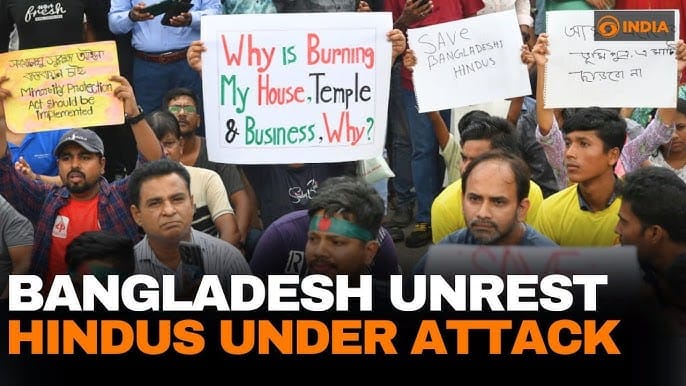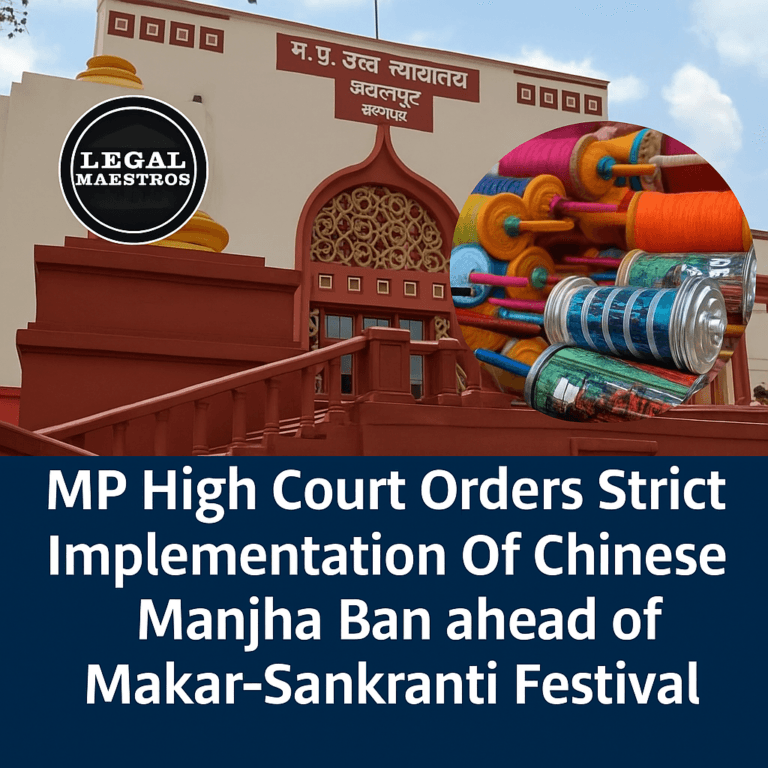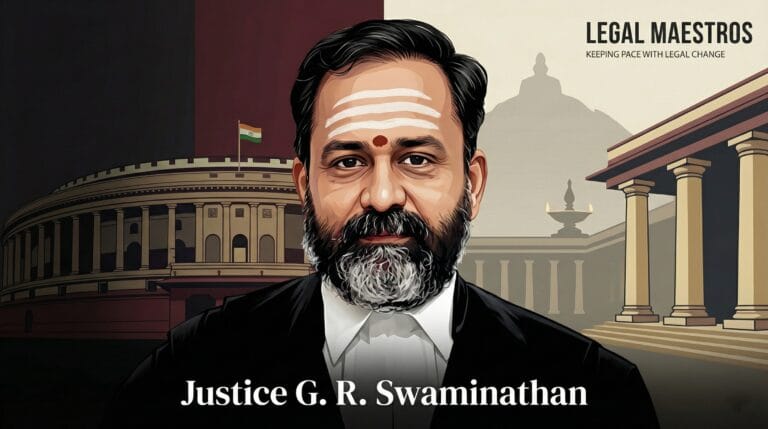
Judicial Recusal Record Shattered: 15th Judge Bows Out of Sanjiv Chaturvedi's Corruption Battles
An Unprecedented Judicial Saga
The protracted legal struggle by the Indian Forest Service officer, Sanjiv Chaturvedi has hit an incredible and unprecedented milestone. One of his cases set records on the number of judicial recusals by a single judge, with a fifteenth judge recusing themselves in one of his cases. This recent event happened in the Uttarakhand High Court where a judge recused a case on the basis of negative statements expressed during the performance evaluation of the officer. This incident brings the focus on the colossal obstacles that one of the most significant whistleblowers in India have gone through.
Judicial recusal refers to the process by which a judge withdraws himself/herself out of a case in case of a possible conflict of interest or suspicion of bias. It is a pillar of justice system that is just as it is fair; based on the concept that not only justice should be done but also should be seen to have been done. Although recusals are a common and essential aspect of legal cases, the amount of recusals in Chaturvedi case is extraordinary. This has been a trend of fifteen judges in different courts and tribunals refusing to listen to his petitions, which casts serious questions.
This bowing down by judiciary members has led to a lot of delays, in effect stalling the pursuit of justice and accountability by Chaturvedi. Whenever a judge recuses, the case must be re-assigned, and the matter may even need to begin afresh before a new bench. To someone battling the power of the state apparatus, these procedural roadblocks might become a major obstacle as the legal struggle is stretched out indefinitely and as the petitioner is pegged to endurance.
For any queries or to publish an article or post or advertisement on our platform, do call at +91 6377460764 or email us at contact@legalmaestros.com.
It is not a single case anymore, but a definite and disturbing trend that has never been seen in the Indian legal history. The cases include allegations of corruption by powerful people with high stakes and appeals against administrative action which Chaturvedi asserts are retaliatory. His recurring dismissals have made his own personal legal battles a bigger argument about whether the judiciary can adequately address sensitive matters with the executive branch and senior officials.
The Man at the Center of the Storm
Sanjiv Chaturvedi is no typical litigant, he is an officer with a strong reputation of being a strict anti-corruption crusader. He is an Indian Forest Service (IFS) officer who has in his career reported irregularities and corruption many times, and at immense personal and professional cost. His work has been described as compulsive record keeping and being fearless in confronting vested interests in the bureaucracy and the government.
His most reputed job was working as the Chief Vigilance Officer (CVO) at the All India Institute of Medical Sciences (AIIMS) at Delhi. In his tenure there, he uncovered and prosecuted hundreds of corruption cases including foreign trips by doctors that were illicit, procurements and appointments irregularities. His activities also allegedly involved senior officials and politicians and so earned him influential enemies but also popularized his integrity and bravery.
Sanjiv Chaturvedi was also awarded with the prestigious Ramon Magsaysay Award in 2015, commonly known as the Nobel Prize of Asia, to recognize his ruthless efforts to uncover and probe into corruption. He was praised in the award citation as having demonstrated exemplary integrity, bravery and steadfastness in relentlessly blowing the whistle by exposing and investigating corruption in the public office. This foreign acclaim cemented his position as a prominent person in the Indian struggle to bring about transparency and good governance.
The legal disputes that he is going through at the moment are a direct result of his whistleblowing actions. He accuses him that the negative comments in his performance appraisals and other negative administrative actions are some punishment to his work at AIIMS and other places. His petitions to the court are not simply to free himself but to help in a greater cause of defending the rights of whistle blowers as well as making sure that the right officers are not persecuted by a vindictive system.
The Long and Winding Road to Justice
The cases on which the judges have recused are varied. Among the main court battles is the negative entries and zero grading awarded in his yearly confidential report (ACRs) by the government. Chaturvedi argues that these bad appraisals are unwarranted and purposely set to damage his record and deprive him of promotions as a form of punishment to his anti-corruption efforts, which the government denies.
Another important group of petitions submitted by Chaturvedi demand formal inquiry by the Central Bureau of Investigation (CBI) into the cases of corruption that he unraveled in his tenure at AIIMS. In spite of his findings being detailed as the CVO, he postulates that the authorities have not been able to take the right action against those who are involved. These instances go outright against the lack of action by government and aim at holding influential individuals answerable to their suspected misconduct.
This unending series of recusals has led to his cases being years in the judicial system. This is a very crucial delay as justice denied is justice lost. Each step that Chaturvedi makes forward may be offset by recusal to reverse him two steps backwards, and so his case must be re-listed, re-heard before a new judge who must be briefed afresh. This churning of the procedure produces a legal vacuum, which advances legal status quo seekers.
This has been an emotionally, as well as a financially, draining road to the officer. The normal situation would be to fight a legal battle as an individual against the enormous resources of the government. Combined with a succession of judicial recusals never before witnessed, the road to a final decision becomes virtually impossible, illustrating the obstacles inherent in the system that may serve to keep even the most ambitious person out of the justice system.
A Troubling Reflection on the System
The causes of each of the fifteen recusals have not always been made publicly, yet the trend in itself calls for profound reflection as to the wellbeing of the judicial process. High-ranking officials are frequently mentioned in the cases and they touch on sensitive issues in politics. This has prompted assumptions that the recusals could be because the judges do not want to preside over issues that are controversial and of which they can be in conflict with the executive branch.






